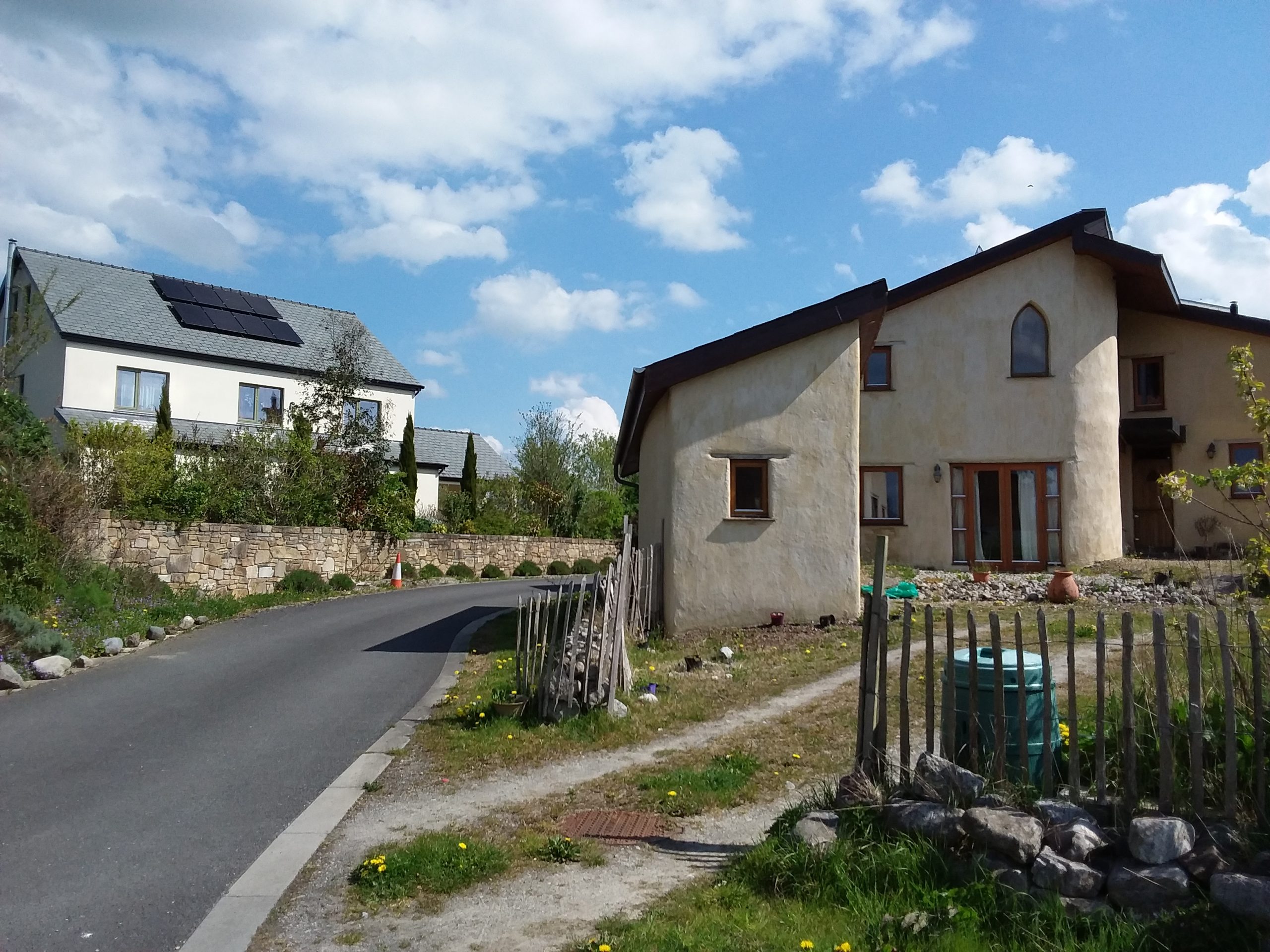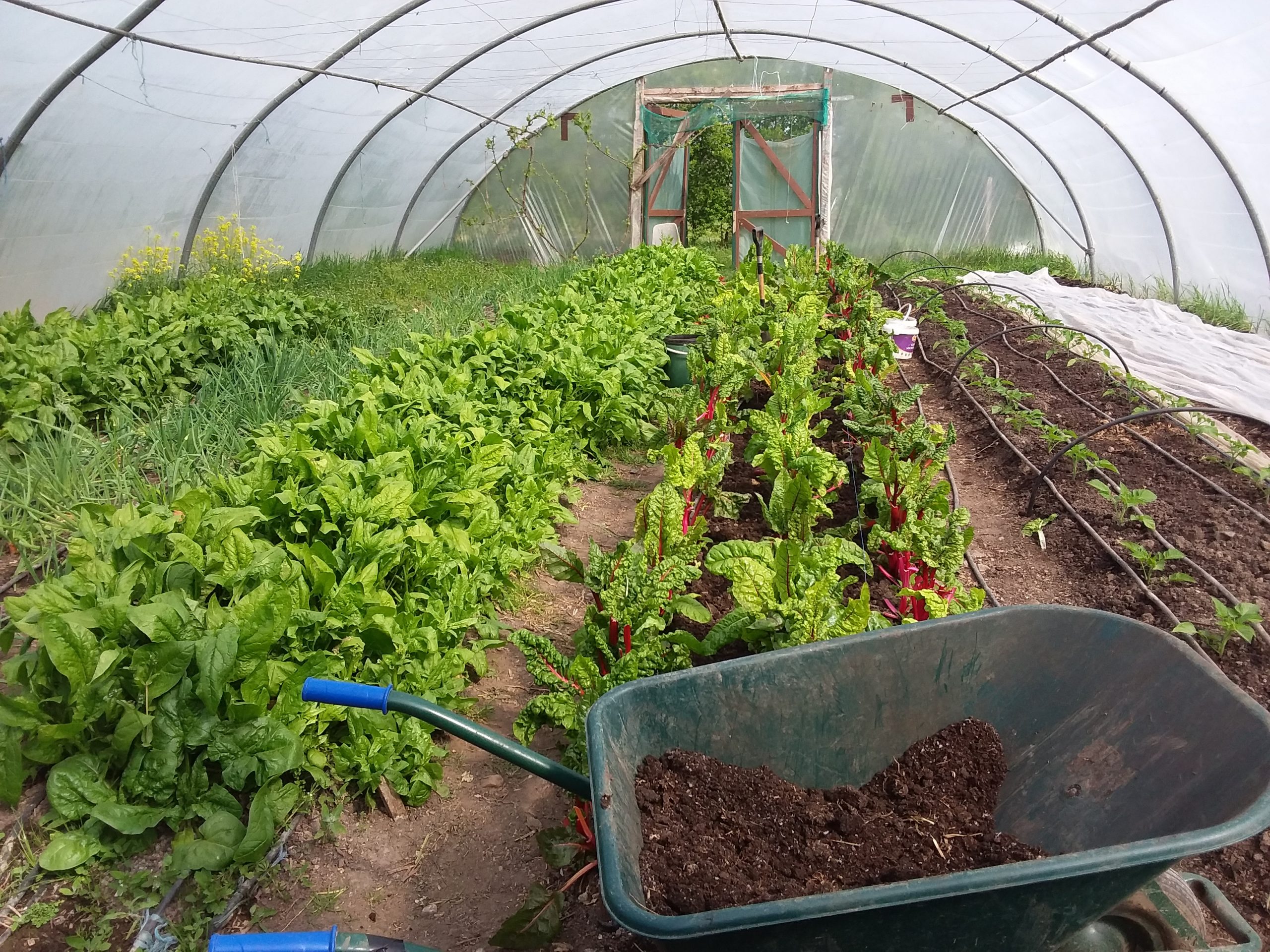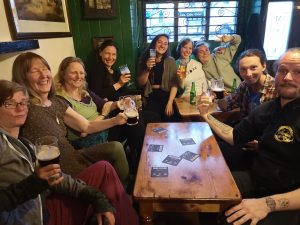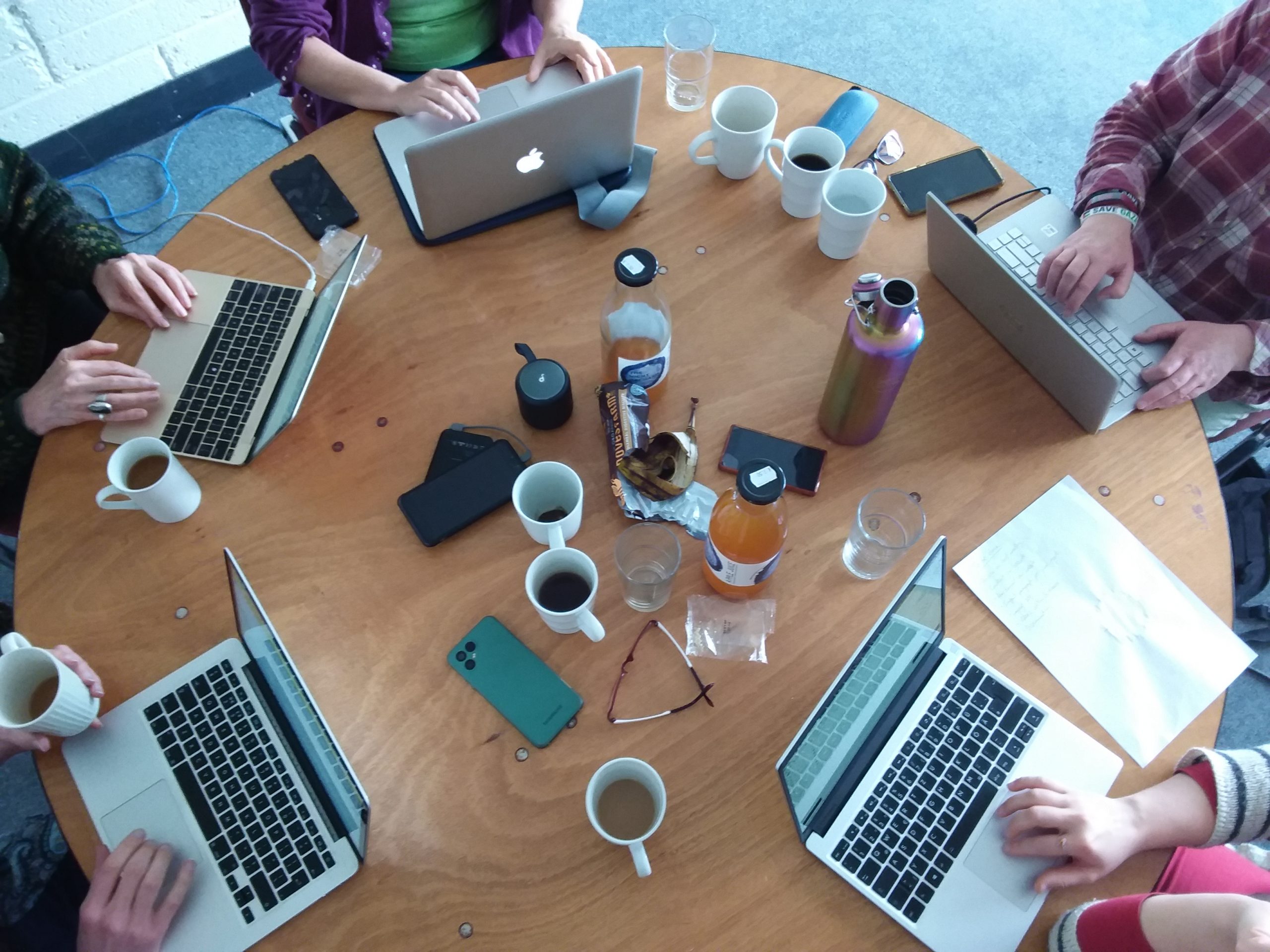By Aurélie Neumann, Ängsbacka
After meeting in Ängsbacka (Sweden) in February 2020, in Sieben Linden (Germany) in November 2021 and in Ananda Gaorii (Denmark) in February 2022, it was now time for our team to meet in the last of the 4 ecovillages involved in this project, Cloughjordan (Ireland). Our meeting took place on April 24-30 under the surprisingly blue and sunny skies of county Tipperary.
We all arrived on a Sunday afternoon to Django’s hostel, owned by lovely Pa & his dog Django, named after the famous musician. The hostel makes every effort possible to reduce its environmental footprint and has been awarded an eco-label certificate by the Green Hospitality Programme, an Irish certification standard for the hospitality industry (more info here). Each community was there: 2 representatives from Sieben Linden (Annika & Nicoletta), 4 representatives from Ängsbacka (Aurélie, Danny, Jeyda & Leann), 3 representatives from Ananda Gaorii (Nitya, Soraya & Dada) and 3 representatives from Cloughjordan (Aaron, Eileen & Mel).
The goal for this last meeting was to wrap up the project and prepare the final outputs: a website with videos presenting the project and the best practices for setting up and running volunteers programmes in ecovillages, a downloadable brochure with the same contents and a final report and accounting for our funders, the Erasmus+ Programme of the European Commission.
A lot of our time was spent sitting in front of our laptops writing, proofreading and editing contents, but we also got to enjoy some lovely human interactions!
We started on Monday morning with a group introduction as our team has seen some members leave and some members join over its 28-month span (initially 12-month but due to the pandemic we had to postpone some meetings and delay the project). We took the time to have a lengthy check in to give everyone the chance to express how they were doing, and in so doing used one of the best practices we recommend to use with volunteers (daily or weekly check in round). We already got to work in the afternoon and allocated everyone a task to focus on, to ensure a smooth and efficient collaboration with tools such as Google Drive.
On Tuesday morning we had a tour of the beautiful Cloughjordan ecovillage and felt very inspired by all the fantastic initiatives and experiments they conduct there:
- A district heating system based on the slow burning of wood chips (a byproduct from a sustainable timber mill and nature reserve in nearby County Galway) that delivers floor heating and hot water to all 55 houses in the ecovillage.
- Community gardens where the ecovillage inhabitants can experiment with various techniques to grow their vegetables year-round, polytunnels (very useful in cold climates), a sensory garden (with different areas dedicated to different senses) to help reconnect people with nature.
- Fruit trees, mostly heritage varieties of apples – beautifully blossoming during our visit – and various berry bushes for kids to enjoy.
- Beekeeping, with plenty of flowers all around for the bees to feed on whilst they support the essential pollination.
- The 17,000 native trees they planted 23 years ago when they started the ecovillage, which include cherry and hazelnut trees, as well as the old mother trees that they protect and conserve – what a delight to walk among all those in the spring breeze.
- Their open air amphitheatre where they hold concert nights with local artists as well as the Elements of Change festival in summer (for a complete listing of all their events, visit this webpage).
- A number of cooperative-style small businesses owned by community members: a community farm that runs a CSA, a bakery, a bookstore, a coworking space, etc. (see here for the complete list and access to their websites).
- The 55 low impact houses (out of the 130 planned) built with varying natural building and ecological techniques such as cob, strawbale, lime plaster, etc.


For more detailed information about the ecovillage and its history, visit their website, articles in the media and research papers about them.
In the afternoon, Aaron & Mel, the 2 volunteer coordinators at Cloughjordan, shared with us what they consider to be their best practices for running their volunteer programme:
- A thorough recruitment process with an honest description of the working conditions;
- A rich induction week, with lots of workshops held by members of the community experts on various topics;
- Empowering the volunteers to design their own system for decision-making, starting with rooms allocation;
- …

We concluded the day with a visit to the local pub and where we immersed ourselves into the legendary warmth and unpretentious attitude of Irish culture. Guess what we drank? Yep, that’s right, a pint of Guinness.
On Wednesday morning we all made sure we were properly awake and dived into everyone’s favourite part of any project: budget and administration! Ulrike from Sieben Linden joined us on Zoom to answer all our questions with her in-depth knowledge of Erasmus+ projects.
In the afternoon we met with Cloughjordan’s 8 volunteers, all of them committed to a 12-month service via the European Solidarity Corps programme. Two of them work with Cultivate, a local NGO, and six of them with the community farm. It was very inspiring to hear about their experience so far, why they chose to volunteer in an ecovillage and what they are hoping to get from this experience. We were also very happy to answer their questions with our experience from our own ecovillages and volunteer programmes.
In the evening was another meeting, this time with the inhabitants of Cloughjordan ecovillage, where we had the opportunity to each present our ecovillage and to answer their questions. Networking guaranteed!
Thursday was an intense day of work, each of us focusing hard on creating the contents for the website, brochure and video. We made sure to still take good care of ourselves though, by working in the local café and savouring their organic and fairtrade coffee and homemade cakes. We were also rewarded with a lovely evening around the fire, sharing songs, stories and poems.


On Friday, Eileen and Pat (one of the 2 farmers running the community farm) treated us with an extensive tour of the community farm and the educational project Cuan Beo. The latter is a space for all the schools who regularly visit the ecovillage to learn about organic farming and the importance of food sovereignty and self sufficiency, as well as seeds saving. In fact, part of the project is a seeds bank that collects and shares non GMO, organic seeds with the community in the local area. The community farm feeds the whole ecovillage (around 100 people in total), year-round, thanks to the 5 polytunnels on-site and the expertise of the farmers. It’s also an inspirational ground for the volunteers to learn how to grow food in a way that is respectful for the Earth and that ensures resilience for their local community in the face of climate change. Key skills to hold for the future as weather patterns will become increasingly disturbed and communities will look for expertise to be able to keep on feeding themselves.
We also were shown the community’s FabLab where people can come and experiment with ideas and make various objects, such as furniture or beehives, thanks to simple machines (a 3-D printer, a laser cutter,…) that all operate with open-source, internationally-available digital blueprints.
We ended the day with clarifying what work was left to finalise the project’s outputs and with a closing circle where we all shared what this partnership has given us and our communities. We left the next day with confidence that we would meet again, keen on developing further partnership projects, and enriched with more know-how and a stronger network created through in-person, deeply human connections.